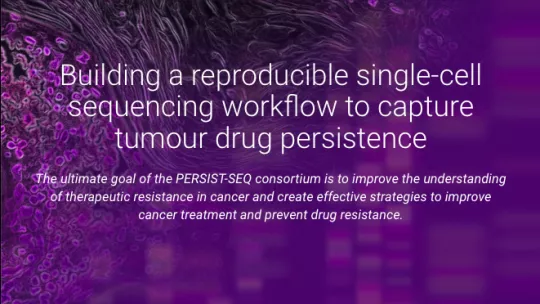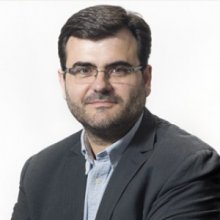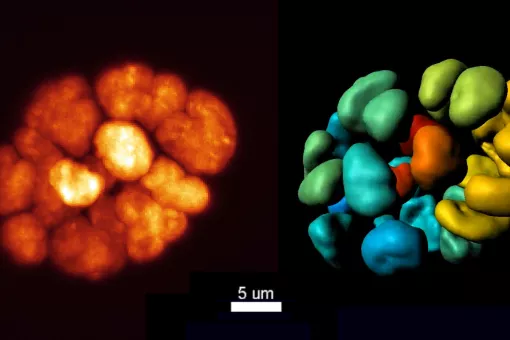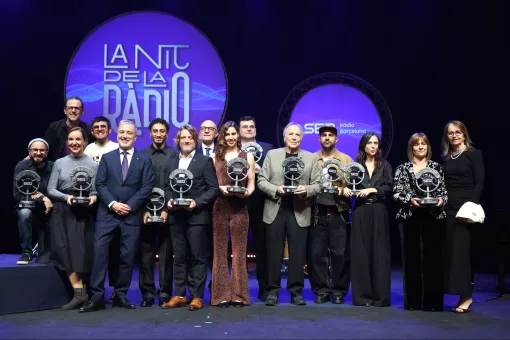Images
IRB Barcelona’s Colorectal Cancer lab will contribute its experience and research models in colon cancer (including organoids) to study the cellular heterogeneity present in tumours and to identify cell populations and mechanisms that confer resistance to treatments.
The consortium is an international public-private sector collaboration involving reference cancer research centres and leading pharmaceutical companies like Bayer and AstraZeneca.
Cancer causes 9.6 million deaths each year. Most of these deaths occur because current treatments fail to eradicate all tumour cells present in the patient. Cancer cells that persist eventually regenerate the tumour, thus leading to relapse. Although the emergence of resistance to drugs used in oncology has been studied in the past decades, details of the underlying mechanisms and how they vary in response to different treatments or in specific types of cancer are not known.
IRB Barcelona’s Colorectal Cancer lab, headed by ICREA researcher Dr. Eduard Batlle, and group leader at CIBERONC network, is part of the international consortium PERSIST-SEQ, a joint private-public sector endeavour that seeks to understand and combat resistance to anti-tumour treatments. Launched at the beginning of September, PERSIST-SEQ is a European project that devised to foster active collaboration between academic institutions, small and medium-sized enterprises, public organisations, and the pharmaceutical sector.
“We are pleased to be part of this ambitious international project that involves such outstanding collaborators. The consortium will use cutting-edge technologies to identify and target therapy-resistant cancer and will undoubtedly have an impact on cancer patients,” explains Dr. Batlle. “Public-private sector initiatives of this kind are very interesting and productive as they create synergies that allow results to reach clinical practice sooner.”
Led by the Hubrecht Institute and the biotech Lygature, both in the Netherlands, the project will last 5 years and have a budget of €7 M.
Cell types and resistance
Research in the Colorectal Cancer lab will focus on establishing the extent to which tumour cell diversity contributes to treatment resistance.
"We have generated state-of-the-art models of colorectal cancer that recreate the disease in humans. These models will be fundamental to decipher the origin of residual disease and subsequent regeneration of the tumour. Some cancer cells already present in the tumour may not be sensitive to the treatment or may acquire resistance with time. Alternatively, there may be mechanisms in the tumour environment that protect some cells from the action of cancer drugs, or a combination of all these circumstances may also occur. Within the framework of the PERSIST-SEQ consortium, we will use single-cell sequencing techniques to study these aspects with the aim to develop new strategies that address resistance to current treatments," says Dr. Batlle.
PERSIST-SEQ receives funding from the public and private sector-driven “Innovative Medicines Initiative”, which is supported by the European Union’s 2020 Horizon Programme and the European Federation of Pharmaceutical Industries and Associations (EFPIA).
The following organisations participate in this project: Oncode Institute; the Hubrecht Institute; the Netherlands Cancer Institute; Single Cell Discoveries; Lygature; the Wellcome Sanger Institute; the Fondazione del Piemonte per l'Oncologia; Hubrecht Organoid Technology; the Institute for Research in Biomedicine (IRB Barcelona); the Instituto de Oncología Vall d'Hebron; Xenopat; AstraZeneca; Merck KGaA, Bayer; Transgene; and Charles River.
About IRB Barcelona
The Institute for Research in Biomedicine (IRB Barcelona) pursues a society free of disease. To this end, it conducts multidisciplinary research of excellence to cure cancer and other diseases linked to ageing. It establishes technology transfer agreements with the pharmaceutical industry and major hospitals to bring research results closer to society, and organises a range of science outreach activities to engage the public in an open dialogue. IRB Barcelona is an international centre that hosts 400 researchers and more than 30 nationalities. Recognised as a Severo Ochoa Centre of Excellence since 2011, IRB Barcelona is a CERCA centre and member of the Barcelona Institute of Science and Technology (BIST).






